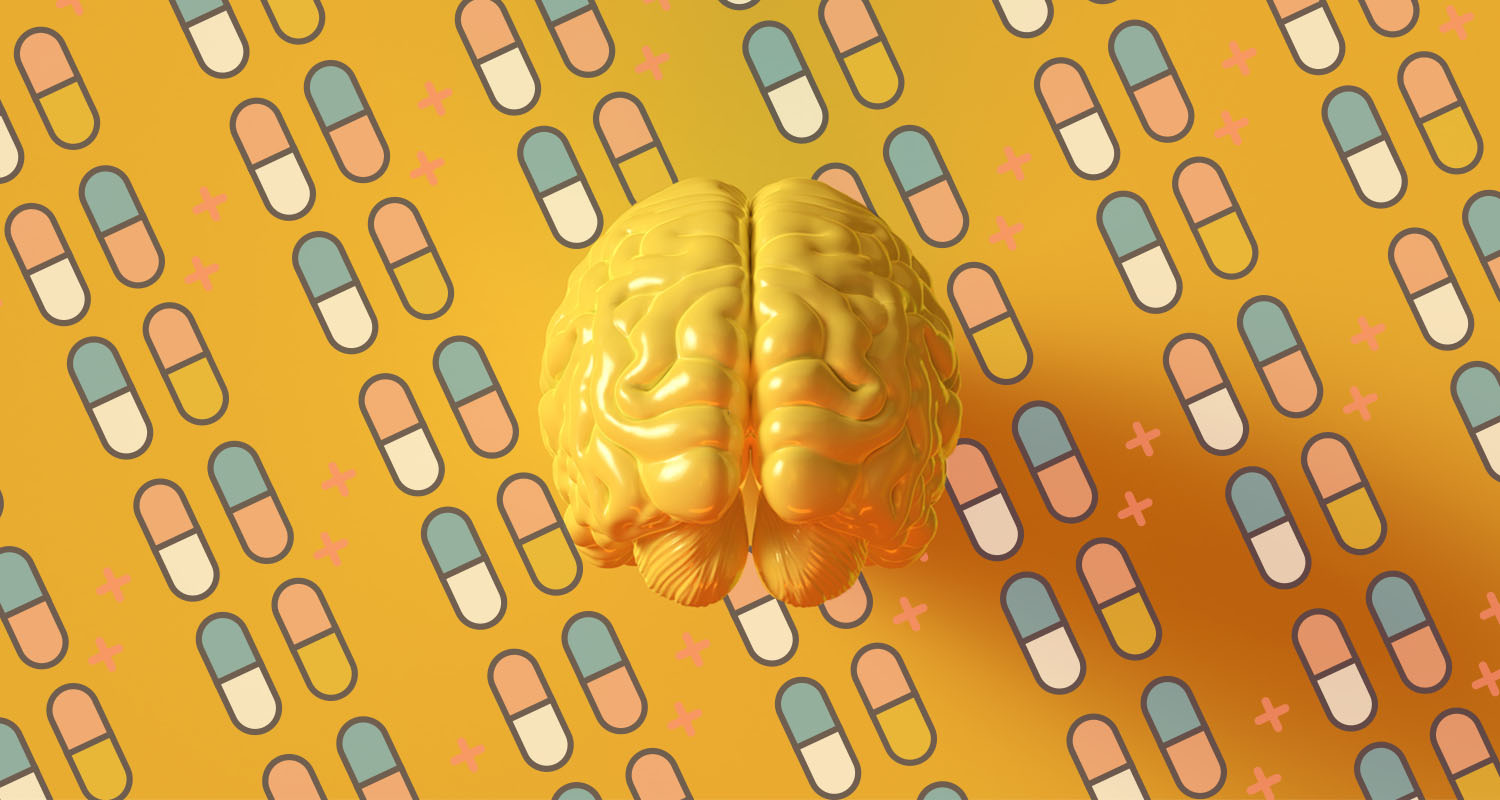
- Sulbutiamine is an upgraded version of vitamin B1 that can pass the blood-brain barrier and reach your brain.
- Sulbutiamine is a nootropic (aka smart drug) that decreases both mental and physical fatigue. It’s great for days when you’re feeling a little slow or unfocused.
- Sulbutiamine also improves mood, and may boost long-term memory.
- NOTE: you want to cycle sulbutiamine. Check the last section of this article for details.
If you’re interested in brain-boosting smart drugs (aka nootropics), it’s worth your time to try sulbutiamine.
What is sulbutiamine?
Sulbutiamine is an upgraded version of vitamin B1. Japanese researchers developed it in the 1960s. They were trying to fix a growing vitamin B1 deficiency in the Japanese population.
Good news: they succeeded. Sulbutiamine is unusually bioavailable — in other words, you absorb it very well, and unlike normal vitamin B1, sulbutiamine passes through your blood-brain barrier, supplying your brain with the precious B vitamin.[ref url=”https://www.ncbi.nlm.nih.gov/pubmed/12973384″]
Benefits of sulbutiamine
No surprise, then, that sulbutiamine has become a staple of the nootropic community. You can use it to upgrade your mind in a few different ways. The two big sulbutiamine benefits are energy and memory, and there are a couple extra benefits too. Let’s take a look at how sulbutiamine can help you build a sharper brain.
Related: 9 Best Nootropics to Upgrade Your Mental Performance
Sulbutiamine to decrease fatigue and improve mood

Improves mood and lowers anxiety: Sulbutiamine may also be good for mood and anxiety. Two studies have found that it relieves anxiety, depression, and social shyness.[ref url=”https://www.ncbi.nlm.nih.gov/pubmed/10858919″][ref url=”https://www.ncbi.nlm.nih.gov/pubmed/14628585″]
But what if you’re a happy, well-rested human who wants to perform at a higher level?
Boosts motivation: Research on healthy humans is scarce for sulbutiamine. That said, there is some evidence that sulbutiamine increases dopamine and glutamate in your prefrontal cortex, which links to increased motivation and good mood.[ref url=”https://www.ncbi.nlm.nih.gov/pubmed/10996447″] Pair that with the fact that sulbutiamine has a growing number of fans in the nootropic community, many of whom report improved mood and heightened mental endurance.
This is anecdotal evidence, of course, but if you’re interested in sulbutiamine to improve already solid brain function, or to boost your mood, it may be worth your time to try it.
On Reddit, one user described the immediate effects as euphoric. “Wakefulness, energy, confidence, very positive mood. No social inhibitions, enhanced verbal clarity, sharp wit, even a charisma.”
Related: Why I Use Modafinil to Enhance My Brain and Mood
Check out the instructions at the end of this article for how to take sulbutiamine. See if you feel a difference (and report back in the comments below!).
Sulbutiamine for better memory

What is acetylcholine? It’s a substance found throughout your nervous system, that acts like a neurotransmitter. Your brain uses most of its acetylcholine to control your muscles, which could explain why taking sulbutiamine helps so much with fatigue. But acetylcholine also plays a key part in memory; it helps you consolidate new memories and remember old ones.[ref url=”https://www.ncbi.nlm.nih.gov/pmc/articles/PMC2659740/”]
The theory of sulbutiamine and acetylcholine synthesis has prompted some early research into taking sulbutiamine for memory. The results are promising so far:
- A study in Alzheimer’s patients found that sulbutiamine improved acetylcholine signaling, which, in turn, restored memory.[ref url=”https://www.ncbi.nlm.nih.gov/pubmed/17675917″]
- Sulbutiamine improves long-term memory in rats, and like with humans, it’s thanks to more efficient acetylcholine signaling.[ref url=”https://www.ncbi.nlm.nih.gov/pubmed/15951087″] Sulbutiamine also improves learning and memory retention in rats.[ref url=”https://www.ncbi.nlm.nih.gov/pubmed/15951087″]
Related: 8 Ways to Keep Your Brain Young as You Age
Side effects of sulbutiamine
Peer-reviewed studies haven’t noted any major side effects to sulbutiamine. At normal doses (200-1000 mg), side effects could include headache, nausea, and trouble sleeping.[ref url=”https://www.ncbi.nlm.nih.gov/pmc/articles/PMC3201900/”]
People doing self-experiments with sulbutiamine, though, occasionally report anxiety and negative thoughts from taking higher doses (most of these side effects showed up around 1000-2000 mg). Others say they feel anxiety from taking sulbutiamine for too long without a break.
You can hedge your bets against negative side effects by taking the occasional day off from sulbutiamine, and by keeping the dose constant on days you do take it.
Sulbutiamine cycling, and how to take sulbutiamine

Instead, experiment with different sulbutiamine cycles until you find one that works for you. A good place to start is 3 days on, 1 day off — or you can save sulbutiamine for days when you want that extra mental boost. Here’s how to take sulbutiamine.
Sulbutiamine dosage: 200-600 mg/day, taken in the morning. Sulbutiamine is fat-soluble (in fact, that’s the reason it can pass the blood-brain barrier and have all these nootropic properties), so be sure you take it with a fat source, otherwise you won’t absorb it. Pro tip: it’s great alongside Bulletproof Coffee.
Sulbutiamine is one of the more experimental nootropics out there. There isn’t much published research on it for performance enhancement, but it’s becoming more and more popular in the biohacking community. If you’re curious, give it a try and see how you feel.
Thanks for reading, and don’t forget to subscribe below for more awesome biohacking content.
Read Next: Build a Bulletproof Mind – Upgrade Your Brain for Better Focus










